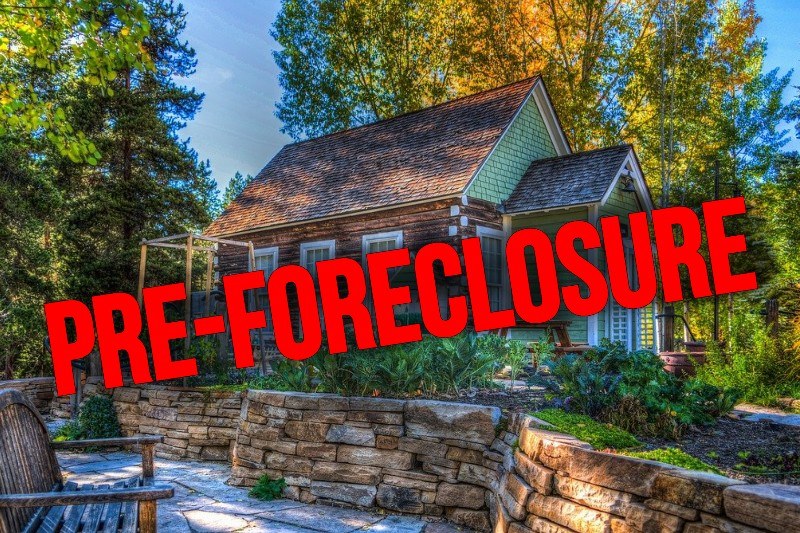The journey to finding your dream home is filled with excitement and anticipation, but it can also be a stressful experience.
To help you navigate the home-buying process smoothly, we've compiled a list of ten common mistakes to watch out for.
1. Not Getting Pre-Approved Before Searching
One of the first steps you should take before diving into house hunting is getting pre-approved for a mortgage. Without pre-approval, you might fall in love with a home only to find out it's out of your financial reach, leading to disappointment and wasted time.
A pre-approval also signals to sellers that you are a serious buyer. Many sellers won’t consider an offer without pre-approval, so having that approval means you’ll be able to make a strong offer as soon as you find a home you like. In a hot seller’s market, having to wait a day can be the difference between an accepted offer and missing out on the home.
2. Being Too Picky
While it's essential to have a clear vision of your ideal home, being too picky can limit your options and prolong your search unnecessarily. It's important to distinguish between your must-haves and nice-to-haves. Remember, no home is perfect, and some compromises might be necessary to find a place that meets most of your criteria.
If you’ve been searching for a while but only found a few homes you liked enough to go see, consider starting with slight changes. Are you willing to commute a few extra minutes to work each day? Can you plan to upgrade a bathroom in the future instead of buying fully redone? Even small factors can really widen your options.
3. Not Being Picky Enough
On the flip side, after viewing dozens of properties, buyer fatigue can set in. You may end up more willing to settle for a home that doesn't truly meet your needs—or become jaded on the process overall.
Consider taking more time to look through listings before going to see homes in person, and try to limit the amount of homes you see in a single day. Stay focused on your priorities and take breaks if necessary to ensure you're making a level-headed decision.
4. Being Afraid to Speak Up
Advocating for yourself is vital when making such a big purchase, so it’s important to communicate openly with your real estate agent throughout the process. If you don’t like a home, say so—your agent likely doesn’t have any attachment to the properties you see! They’re there to help you find the right property and will not be offended if you voice your concerns or preferences.
5. Not Working with an Agent
Building off of the previous tip, a real estate agent is there to advocate for your best interests and ensure you're making informed decisions. They have access to listings, market insights, and negotiation skills that can save you time, money, and stress.
However, not all real estate agents will give you top-notch service. It’s a good idea to speak with a few agents before choosing someone to represent you in such a monumental manner.
Speak with a Houwzer agent
6. Skipping the Inspection
Even if you're planning to buy a home as-is or only negotiating major issues, a home inspection is crucial. It provides a detailed understanding of the property's condition, helping you avoid unexpected and costly repairs down the line—or in the case of an as-is sale, to know what repairs to expect. Knowledge is power, and an inspection can equip you with the information needed to make a confident purchase.
7. Not Considering the Neighborhood
When evaluating a potential home, it's essential to consider the surrounding neighborhood. Look into local amenities, commute times, and whether the neighborhood suits your lifestyle. For example, families with kids may want to see if there are other children in the neighborhood for their kids to play with.
It’s also a good idea to drive around the area at different times of the day. For example, a home that was perfect when you saw it in the morning may have neighbors that are noisy well into the night.
8. Not Considering Resale Value (Or Placing Too Much Emphasis on It)
Something that buyers may fail to consider is resale value—which can be important if you’re not planning to stay in your home for very long. Is the school district well-rated? Is it part of an HOA with exorbitant fees? Any potential red flags you notice as a buyer may very well be noticed by potential buyers when you eventually want to sell.
If you intend to live in the home for a long time, however, prioritize what makes you happy and comfortable. Making the home suit your current needs and desires is more important than worrying about what future buyers might think.
9. Making a Big Purchase Before Closing
It's essential to maintain your financial stability before closing on a home. Making significant purchases, like buying a new car or taking on other debt, can affect your credit score and mortgage approval.
Wait until after closing to make any large financial decisions to ensure there are no last-minute issues with your financing. If you’re unsure if something is going to affect your pre-approval, always check with your mortgage advisor before proceeding.
10. Forgetting About Costs Beyond List Price
The list price of a home is just one part of the total cost. Don't forget to factor in additional expenses such as property taxes, home insurance, closing costs, and fees for professional services. It’s a good idea to talk to your real estate agent and lender to get a more holistic view of the finances required.
Being aware of these costs will help you budget more effectively and avoid financial strain after moving in.
Conclusion
Avoiding these common mistakes can make your home search more successful and enjoyable. By being well-prepared, working with a knowledgeable real estate agent, and staying focused on your priorities, you'll be better positioned to find a home that meets your needs and fits your budget. Happy house hunting!



